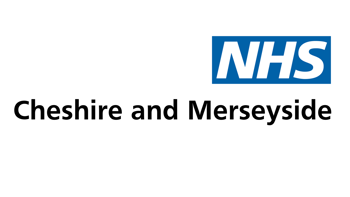NHS Cheshire and Merseyside update on system pressures
Thursday, 5 January 2023

With NHS services reporting exceptional and increasing pressure, NHS Cheshire and Merseyside is urging members of public to ensure their vaccinations – such as flu and COVID-19 – are up-to-date and to continue to follow simple self-care advice.
If you need to access a healthcare service, but it’s not an emergency, please first use NHS 111 Online to ensure you are signposted to the correct service.
NHS 111 Online can tell you:
- Where to get help for your symptoms
- How to find general health information and advice
- Where to get an emergency supply of your prescribed medicine
- How to get a repeat prescription
Across Cheshire and Merseyside, NHS services are experiencing exceptionally high demand – including high numbers of people attending emergency departments (A&E) and GP practices, as well as high call volumes on both NHS 111 and 999.
In addition to annual winter-related pressures, this is currently being complicated by high numbers of flu and COVID-19 hospital admissions and understandable concern about Strep A in children.
Both the quality of many local NHS services and the access to them is currently compromised and we acknowledge the extraordinary strain that frontline health and care staff are under.
Hospital bed occupancy across Cheshire and Merseyside is currently consistently above 95%, with more than 400 beds occupied by COVID-positive patients.
Around 1,000 people currently remain in hospital across Cheshire and Merseyside despite being medically fit for discharge – leading to assessment, treatment and ambulance handover and response delays.
Intensive and focused work is underway with health and care partners, including those in local Government, to urgently address this challenge.
In particular, we are acutely aware of the need to minimise ambulance handover delays as the patient at greatest risk is always the patient the NHS has not got to yet.
Last month (December 2022) ambulance handover times across the North West were on average 20 minutes slower than in the equivalent period in 2021.
Our priority, as always, is to ensure safe and high-quality care for people in Cheshire and Merseyside, but it is clear that significant further challenges lie ahead in the coming weeks and months.
While the NHS continues to focus on recovering services and reducing waiting lists that built up as a result of the pandemic, this work is inevitably being impacted by the unprecedented current pressures.
It is sadly unavoidable that some routine appointments and planned operations are now having to be rescheduled as a result. As always, people should attend all of their appointments unless advised otherwise.
NHS Cheshire and Merseyside’s leadership team and wider staff team will continue to do all we can to support frontline colleagues.
As a system, a number of measures are in place to help relieve the current pressures, including:
- Work with NHS Trusts to ensure all possible capacity across the healthcare system is utilised and to support the release of ambulance crews.
- National funding of c£19.2m is being utilised across Cheshire and Merseyside to support hospital discharge processes and ensure more care packages are available in the community. In recent weeks an average of 338 ‘escalation beds’ have been open across Cheshire and Merseyside to help cope with demand.
- Significant investment continues to be made in virtual wards to support more people to be treated out of hospital. Investment is also being made in reablement services, while the national additional roles reimbursement scheme is helping to create capacity in primary care.
Irrespective of how busy local NHS services are, and any NHS industrial action, it is essential that people who need urgent medical care continue to come forward – especially in emergency and life-threatening cases, when someone is seriously ill or injured or their life is at risk.
Typical emergencies include cardiac arrest, loss of consciousness, fits that aren’t stopping, breathing difficulties, severe bleeding, severe allergic reactions and serious head injuries. If you have already called 999 to request an ambulance, please only call back if your condition has worsened or to cancel the ambulance. Repeatedly calling 999 can block phone lines for other emergencies.
More information about when to call 999 and when to go to A&E is available via the national NHS website.